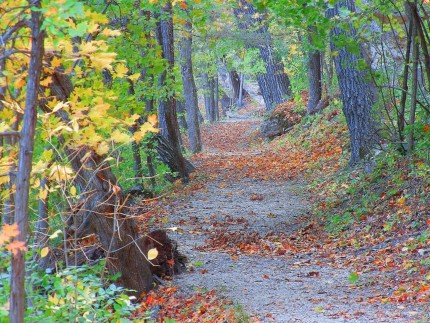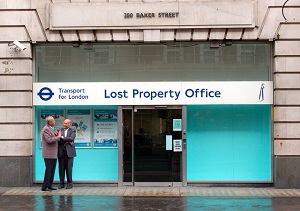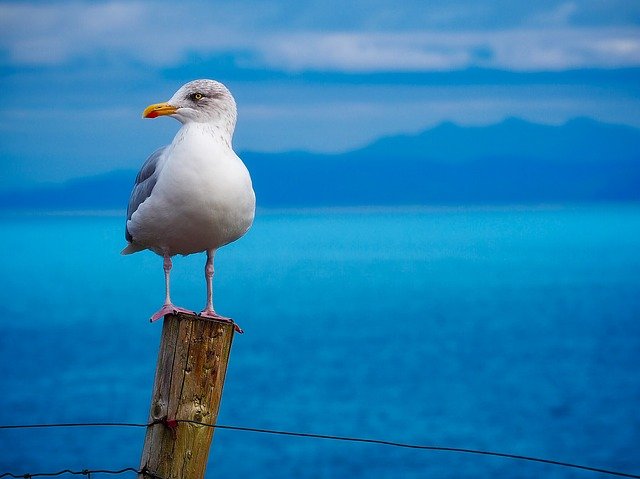You have no items in your cart. Want to get some nice things?
Go shoppingTranslation Alex Fleming

We enter the park. The ground is blanketed with the brown leaves of last autumn. The trees still have naked black branches, but the sunlight is strong and the spring birds have awakened. The air is streaked by the long, sharp shadows of trees.
Thomas is walking fast and says I don’t seem any different. Not at all. His voice sounds normal when he says it, but he ups his pace even more. His wellies leave deep imprints in the thick leaves. I’m doing my best not to fall behind and not to lose my breath.
We walk where we always walk, the same route we took all those years, with the pram and then without. We’ve lived in this area for ages. Of course we’ve walked here a lot. Where else would we walk? It’s a lovely big park. There’s a deep pond in the middle. In summer the water lilies bloom and you can feed the ducks. And on the other side there’s a beautiful hill of oak trees where the windflowers grow in spring. The kids have always loved coming here. Of course we’ve come here a lot. It’s one of the city’s nicest parks and it’s so close to us. The air feels clean here and you can swim in the pond. And in the little playground on the north side there’s a sledge spinner and hills to sledge down in winter and animals to look at. Little black pigs and hens laying eggs in their nests and big hutches for guinea pigs and rabbits. Of course we’ve come here a lot. We live so close by. Where else would we have gone?
Thomas is walking really fast and I don’t know what difference he’s trying to find in me. What difference should he have seen? It’s not like I’ve changed on the outside. Just like he hasn’t, either. He looks just like he did yesterday, in that same worn leather jacket and those same boots. And those trousers – he’s had them a long time. He’s still him and I’m still me. And obviously we still look the same as yesterday and the day before that. The only difference is now he knows something about me, something about that longing he’s probably always known I’ve had. But it was last night that I named it. Otherwise everything would have been like it was before. The park would have been as normal and so would we. We’d have walked slower, slightly closer to one another. And we’d probably have touched every now and then, and held hands – that’s what we normally do.
In front of the café that’s closed for winter we turn and take the small path down towards the pond. Here among the trees it’s slightly murkier and more shaded, but this is still where we always turn. It makes for a better walk than the bigger path, the one that curves to the right towards the allotments. That path takes you back home too soon. We like walking; we love long walks. We’ve tried out all the paths in this park and have worked out how to get the longest possible walk in without having to turn back on ourselves.
Thomas is walking much faster now. It’s hard to keep up. I don’t know if he’s angry, but I know that he’s mindful of me and can tell I’m looking at him. I feel the way I used to feel as a little girl on walks with my dad. I’d always be watching him, so I could be sure what he thought of everything. And not before I knew what he thought would I dare to have an opinion myself. I’d only laugh if Dad laughed and I’d only think it was hot, cold, windy, boring, fun – anything – if he said it was. Never otherwise. And I’d only notice that a dog was nice if he stopped and asked about the breed. With all the other dogs I’d just turn a blind eye. Sometimes we’d never see a single dog; sometimes we’d see them everywhere. On those days we’d stop and speak to all the dog owners. Including the ones with ugly dogs.
Today is one of those days where there are no nice dogs. I’m not even sure if the pale, wonderful spring sunshine is nice, or the fact that there’s finally a little warmth in the air. Soon the birches will start to bud and flush purple, with captivating little mouse-ear leaves – but all this normality disappeared last night and now it feels so distant.
We’re walking fast and I have to take my scarf off and put it in my pocket. My back is sweaty, my top clings to my skin and my face is burning. My hands feel dry and swollen. I want to take Thomas’ hand as I normally do, but I can’t today. His hands are in his pockets and I’m thinking I might not get to hold them again.
I look up at his face. He hasn’t got a scarf on and his skin is slightly red where the collar of his leather jacket rubs. His skin is very sensitive. I know all about his softness.
Why didn’t you tell me before?
I’m not expecting him to sound angry. I’m breathless now but his voice sounds normal, despite him going so fast.
What do you mean before? I say. When was that? When did before begin?
I sound wheezy and childish. But I’m asking because I don’t know. I don’t know when it began and I don’t know what happened next. What does he mean by “before” – and what comes after that? Maybe nothing has begun. Maybe I’m getting ideas into my head. Or maybe it’s only now that it’s beginning – right now, on this pained walk of ours.
He can hear my mind whirring – he always can – and turns away from me and walks even faster. But I can’t go any faster. My legs are too short, I’d have to run. I open my jacket but my scarf keeps trailing out of my pocket. I take it in my hand instead, wind it round and round until it forms a large ball. I’m practically running, my boots are slipping on the leaves. It’s damper here on the slope down towards the pond – more shaded – and the leaves on the ground are wet.
He looks down at my hands, at the scarf.
For God’s sake, do you always have to fiddle with that? he says. Can’t we just walk?
I clutch the scarf tightly. I can see a hole on the elbow of his leather jacket. This is nothing strange. It’s an old jacket. We bought it in Copenhagen that first winter. I was already pregnant. My stomach wasn’t big yet, but I’d already bought that blue woollen jacket that I’d be able to button up for some time to come. After all, my belly needed to stay warm; I needed to keep warm. Together in our new jackets, waiting for our child to arrive. But within six months the buttons had started to pull on that soft blue wool and the buttonholes got stretched, and I could never again wear that jacket without remembering how it was back then, back when I had another body bulging inside my own, back when all of that had just stirred. I had two hearts beating in me then, two circulations of blood, and that feverish hunger was new but my cravings hadn’t really kicked in yet. Did it begin as early as that? Thomas used to laugh and say that I was a soft, smooth hole that he had to fill with hot food, cold water and burning love every day. But it wasn’t just a laugh. Not for me. That insatiable hole is still growing and it’s so dark and empty now, it terrifies me. I never get enough. Is the fact I can now finally say this a beginning – or is it a painful end? How can you demand I know the order of everything, Thomas? Surely there can never be a point where everything between our bodies either begins or ends?
Why are you going so fast?
What I really want to say is a firm “don’t go so fast”, but all that comes out is this stupid feeble question. It hangs accusingly in the clear air.
The sun is pushing its way down through the bare black branches and the birds are singing so beautifully here in amongst the trees. My eyes aren’t used to this bright spring light and tears are streaming down my cheeks, tears that aren’t real tears but just that same tepid bodily fluid that’s running under my top, a thin tickly sweaty trickle that makes my waistband wet.
Please, don’t go so fast!
That sounds better, stronger. But Thomas doesn’t slow down. I know he’s still waiting for an answer, but I don’t know what that answer is. When should I have told him it began? Which month, week, day, hour, second of all our years? And when did this become an afterwards? Has there even been one? What are we actually talking about? It’s something I said in the middle of the night when everything around us was dark and unfamiliar. All I want is more. For there to be more. That’s always what I want. But I don’t really know what I mean. I promise I don’t. Can you believe me when I say that, Thomas?
Would you stop going so fast?
A man and a woman are coming towards us on the narrow footpath. They’re pushing a twin buggy in front of them. It looks heavy, and both of them are holding the handle. Beside them walks a big brown dog on a lead.
There’s no space on the path when we meet. Thomas and I take a step out into the wet gooey mass of leaves. We immediately sink a few inches down into muddy water, but we’re both wearing wellies so it doesn’t matter. The dog, on the other hand, doesn’t want to get its paws wet and turns in sharply. Its lead gets tangled in the front wheel of the buggy, which comes grinding to a halt right in front of us, like a battleship.
Sunk down in the water, we watch the man as he bends over and tries to coax the lead out of the muddy wheel hub. Two little girls are sitting in the buggy. They look very much alike. The man is wearing light leather gloves. He takes them off and places them next to the girls. The soft leather is stained but his hands look clean and white. His fingers are short and narrow.
The woman makes no effort to help, but talks to the dog in reassuring tones as it tries to drag itself away, seemingly afraid of both the man and the big gleaming buggy.
It’s ok Lucky, she says. It’s ok.
She has a pleasant deep voice, but the dog doesn’t seem any calmer; it’s straining backwards as though terrified of being pulled in towards the wheel and getting caught. Its brown eyes are wide and its ears are pinned back. Its entire body is tensed.
It’s ok Lucky, says the woman. It’s ok, Lucky.
She tries to pull the dog towards her, to hold it closer to the buggy. She’s attracting it with her silky voice. But then the dog panics and makes a sudden jerk, breaks free and runs off into the park with its long lead trailing behind it.
The man looks at neither one of us nor his wife as he stands up from his crouched position. His face is red and he shoves the buggy too hard, sending it swerving. The front wheel sinks deep into the mud beside us. Thomas and I are now completely trapped between the buggy and the waterlogged area behind. We can’t move in any direction. The water’s already half-way up our bootlegs.
The buggy is tilting as though it’s going to topple over and the kids begin to cry. The cry of those two little pink girls who have sat quiet and clean under the buggy’s hood in their identical all-in-ones, hats and gloves quickly grows to a shrill scream. One throws herself backwards, her body stretched into an arc; the other hammers her legs on the inside of the white footmuff. Without so much as a glance at one another, Thomas and I both take hold of the buggy’s frame, haul it upwards and push it back. We’re like a well-oiled machine in these situations and the buggy’s soon up on the path again. But the man doesn’t nod at us and he doesn’t smile. He just pulls up the hood and extends it firmly back down over the now-howling-girls’ little heads and mumbles something.
Sorry? I say.
And then he looks straight at me for the first time and repeats what I’d heard him say without really believing I did.
Nigger bitch, he says, then speeds off with buggy. He doesn’t see that he’s dropped one of the little pink hats in the mud.
We watch the buggy go. The girls’ screams cut through the still, sun-filled park. The little pink hat beams on the path in front of us. The dark brown muddy water seeps slowly up into the knit. High up on the hillside we hear the mother calling the dog’s name, but we can’t see her anymore. And somewhere far away there’s the sound of a dog barking.
Thomas watches the buggy go and shakes his head. Maybe he can see the dog running somewhere up the hill. He’s taller than me and I never quite know just how far he can see. One of my feet feels wet, and when I pull it out to straighten my sock and see if there’s a hole in the rubber I hold on to Thomas’ jacket to keep my balance. He stands steadily and I feel the soft leather against the fingers of one of my hands and the warm damp sock against the other. In front of us on the path lies the mud-soaked hat, and I think about how dirty and soiled everything will be in that big buggy this time next year, once the girls have started walking and no longer want to stay still. Once the footmuff has been washed so many times it’s gone bobbly and once the man and woman can no longer walk calmly on the other side of the hood, talking as they push a buggy of clean pink children before them.
Lucky!
We hear the woman shouting. She’s a long way away.
Lucky! Lucky.
I stick my foot into the wet boot and when I let go of Thomas’ arm I see the dog come rushing. It’s running alone towards us. Its lead is trailing behind it, pulling up leaves and muck.
The dog sits obediently before us – as though we’d told it to – and Thomas and I bend down and stroke it.
Nice dog, we say together, as though we’re still one being and as though the dog is in some way in need of consolation.
It’s ok, nice dog.
We stroke and rub the brown dog, who’s beside itself with joy. It gets up, whips us with its tail and rubs it body against our legs. Its entire body is shaking with delight, as though we knew one another. We laugh at it and say again and again:
Lucky, Lucky, what a nice dog you are.
And we carry on laughing at how it bounds around and licks our hands. And we unclip the lead and hang it high on a tree branch and say what a nice dog you are, Lucky, surely you wouldn’t want to get caught on anything in the park.
It’s such a big park. We’ve walked here so many times. Where else would we have walked? There’s a deep pond in the middle. In summer water lilies grow here and you can feed the ducks.
The dog looks at us first imploringly, and then in confusion, but we clap our hands hard and shoo it away firmly. Then it turns around and starts to run. We see it disappear up towards the hill, into the sunlight in amongst the trees. The pond shimmers below us and we walk further into the park. It’s such a lovely, big park. Where else would we go?

About Cilla Naumann
Cilla Naumann, lives in Stockholm and has been working as a journalist since the mid-1980s, when she led coverage of the Olof Palme assassination for Dagens Nyheter, Sweden’s largest morning newspaper. She made her literary debut in 1995 with the novel Vattenhjärta (Water Heart), receiving that year’s major Swedish debut novel award. Since then, she has written more than ten novels for adults and young adults and received many awards and award nominations. Several of her books have been translated into other languages, including German, Dutch and Danish, and two of her short stories have been adapted for the screen.




